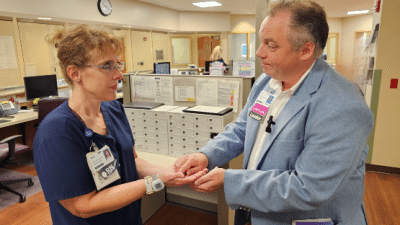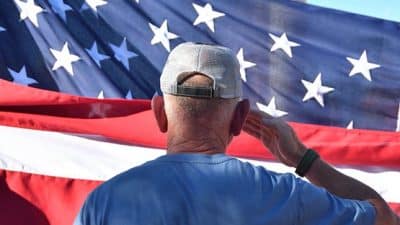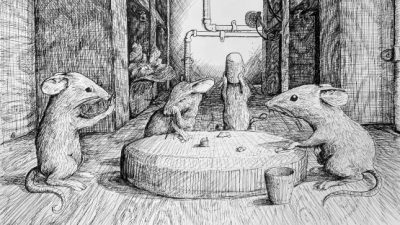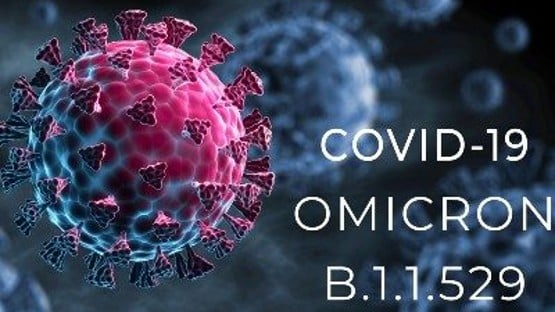
The Shenandoah Valley’s epidemiology as 2024 begins includes high rates of RSV among adults and children, as well as COVID-19 and influenza.
“We’re really in the full throws of it. We saw RSV start probably in earnest in early November,” said UVA Health Director of Hospital Epidemiology Dr. Costi Sifri Friday morning.
In mid-December 2023, cases of COVID-19 and influenza increased in the Valley as friends, families and co-workers gathered more for the holiday season. According to Sifri, his colleagues across the Commonwealth are also seeing a peak in respiratory illnesses after the holiday season.
“We’re in the middle of cold and flu season. We can now call it cold and flu and COVID season,” Sifri said.
However, although cases are “significant” in January 2024, they are not as high as in early 2023.
“I think we should find it as no surprise and I think we’re going to continue to see it,” he said.
All three respiratory illnesses are so far represented as infecting the Valley, but RSV has been seen more in adults this season than last season, when children were more affected.
“Not a slow year by any means, but last year’s RSV [was higher],” Sifri said.
Some patients experience complications with RSV, flu or COVID-19, which require hospitalization, including secondary infections.
While cases of flu and COVID-19 are increasing as 2024 begins, Sifri said that cases of COVID-19 have doubled already five days into January 2024 compared to the middle of December 2023.
Officials see a seasonal component to COVID-19. Since 2020, COVID-19 tends to increase in cases during winter months, but cases also continue to increase throughout the year in an unpredictable trend.
Sifri said that what has proven predictable about COVID-19 is its ability to create new variants “as it learns to adapt to our immune system.”
Symptoms of flu, RSV and COVID-19 are discernable by examining a patient’s respiratory symptoms and what is happening in their local community. Sifri called it local epidemiology.
Influenza comes on rapid and makes individuals “very sick, very quickly.” COVID can mimic the flu, but does not necessarily have as much of a fever. COVID can also include gastroenterological (GI) symptoms, as well as loss of taste and/or smell. RSV includes a cough or weezing, especially for seniors.
Sifri said that physicians are advised to test symptomatic patients for all three respiratory illnesses. Sometimes, a patient may have two illnesses. Accurate diagnosis is important for treatment and advising patients on keeping others safe.
“The earlier you’re on treatment, the better,” Sifri said, especially if an individual has risk factors such as heart or lung disease or a compromised immune system.
If symptomatic, Sifri recommends letting your primary care physician know so that you may understand your individual risks.
The new variant
“JN.1 is rapidly increasing in terms of its dominance in the United States,” Sifri said of the latest COVID-19 variant.
Also worldwide, JN.1 is a subvariant, or child strain, of BA.2.86. Sifri said the challenge is that information is unavailable about variants and tracking cases. The mutation of JN.1 suggests it is more transmittable than other variants.
“We’ve seen this story before. We’ve seen how variants emerge,” he said. And JN.1 is not yet a concern, but officials will keep a watch on the variant. In fact, the World Health Organization has already listed it as a variant of interest.
So far JN.1 is not causing more hospitalizations or negative consequences, but officials are unsure if it could cause other consequences such as long COVID. The symptoms of JN.1 do not differ significantly from COVID-19.
Individuals at risk for JN.1 include anyone who was recently infected with COVID-19 and anyone behind on vaccinations.
“Then, you’re at risk for this infection. COVID hasn’t changed. Maybe we have changed. It remains a wicked infection,” Sifri said.
Now is the time if you have not been vaccinated in the last year or more to receive a vaccination against COVID-19.
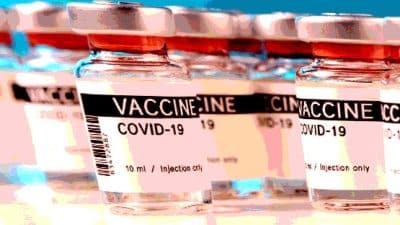
– stock.adobe.com)
Sifri pointed out that at the height of the COVID-19 pandemic in 2020, influenza and colds were not a problem, because humans practiced social distancing and wore masks.
“These are practices that still work,” Sifri said.
Also, individuals who are sick should stay home and wait to get well.
Sifri said he has been and will continue wearing a mask when surrounded by family, friends and coworkers.
“We know that [masks] work.”






